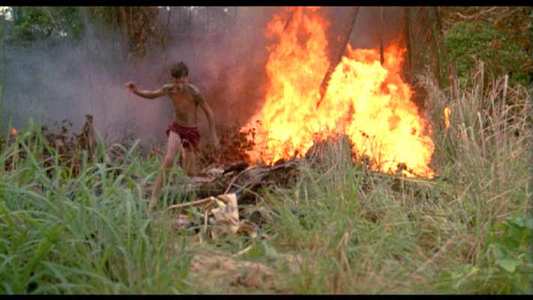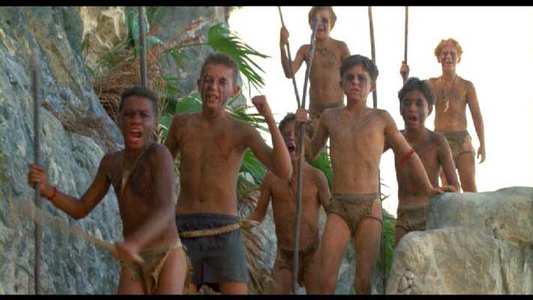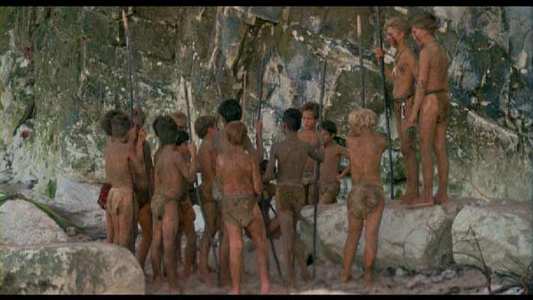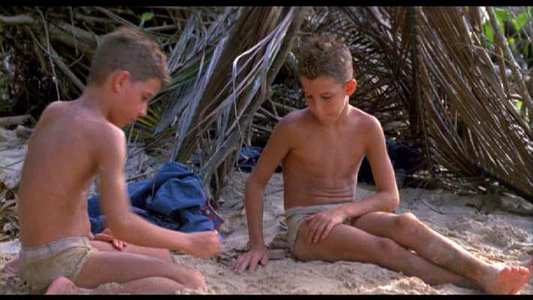Review of Lord Of The Flies
Introduction
A plane-load of schoolboys (here American military school cadets) crash-lands somewhere in the Pacific Ocean, where they are washed ashore with the only adult being a mortally wounded pilot. The genial, pragmatic Ralph (Balthazar Getty) soon finds himself promoted to leader at the behest of the ruthless Jack (Chris Furrh), whose willing to put up with Ralph’s puppet-democracy as long as it fulfills his desires to muck around and hunt wild animals. However, as Jack’s subdued cruelty begins to dominate the decision making of the group, the boys split into two camps, with Ralph and voice of ridicule and reason Piggy (Danuel Pipoly) overseeing dwindling resources of civilization. As food, shelter and hopes of rescue are gradually eroded, Ralph and Piggy’s desperate struggle for hearts and minds marches towards its tragic conclusion.

Video
Excellent location photography (from Port Antonio, Jamaica) receives the usual run-of-the-mill MGM back-catalogue transfer.

Audio
Innocuous stereo, neither impeding nor highlighting some impressive sound design.

Features
Trailer.

Conclusion
Even-tempered, rather redundant modernization of William Golding’s celebrated novel. The script maintains much of the heavily metaphoric images and Darwinistic themes as the novel, as a result the same flaws persist above and beyond the quality of the translation: the overly sharp dichotomy between Jack’s sabre-like savagery and Ralph and Piggy’s servile civilizing impulse. Director Harry Hook tries to lend the character’s extreme personality shifts greater realism by locating the narrative within the rigidly competitive hierarchy of US military schools. Whilst this offers the story a more graphic display of how social austerity breeds its own destruction by pushing itself so far from anarchy that when greeted with its opposite it has no method of response, the move further problematizes Golding’s specifically British, post-war characters, with only the most superficial alterations being met by screenwriter Sara Schiff.
As a metaphor for the naturalistic impulse of fascism, as well as humanity’s violent fate, its pretty bleak, didactic, and more than a little schematic around the edges. It also still strains credibility, with the character’s shift from adolescent amorality to ritualistic, red-blooded murderous sadism resulting rather too swiftly to wholly convince. The performances are variable, but the central combative chemistry between Jack and Ralph is electrically handled by Getty and Furrh respectively, with Furrh in particular conveying Jack’s buried, explosive intensity.
It’s a mark of the novel’s dogmatic stance that this film adaptation never really rises above being much more than a conceit. Whilst Peter Brooke’s definitive 1963 adaptation succeeded through stark, simplistic images, Hook attempts to enliven events with expressionistic slow-motion and tribal orchestration in moments of chaotic, primal violence. Such touches serve to push the viewer further away from Golding’s warning, that moving away from the structures of society leads to a bestial anarchy, by placing an artificial stylistic barrier between us and the material. With material that must maintain believability to retain its thematic vigor, less would have been more.
Your Opinions and Comments
Be the first to post a comment!